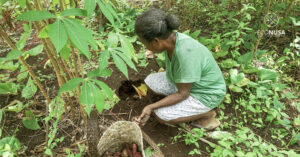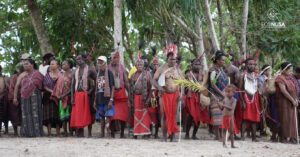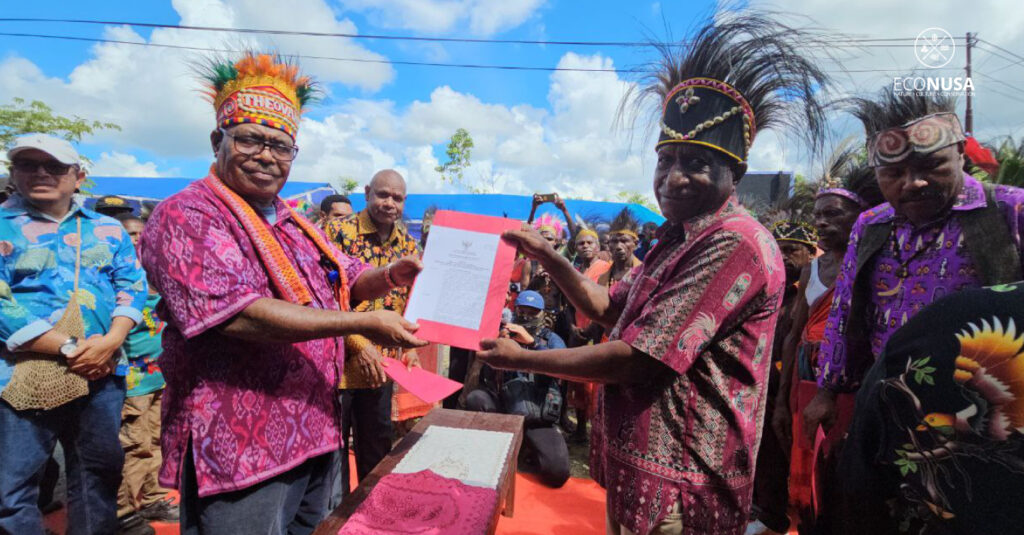
A smile bloomed on the faces of the Tehit Mlaqya and Nakin Onim Fayas sub-tribes in April 2024. Their long struggle to defend their indigenous lands paid off with the signing of the Decree of Recognition and Protection of Indigenous Peoples (MHA) and Indigenous Territories by the Regent of South Sorong.
This long journey began when several areas in South Sorong Regency were threatened by deforestation and land clearing for palm oil plantations by several companies. These plans were agreed upon without any discussion or approval from indigenous people. In 2018, the Governor of West Papua, Dominggus Mandacan, instructed an evaluation of land-based industry permits, especially palm oil plantations.
As a result, in mid-2021, Governor Dominggus Mandacan and South Sorong Regent Samsudin Anggiluli revoked 17 plantation company concessions, including those in South Sorong.
Alongside the process of revoking palm oil plantation permits, the Tehit Mlaqya and Nakin Onim Fayas sub-tribes took the initiative to map their indigenous territories to gain recognition and protection for their Indigenous Peoples (MHA) and lands. In collaboration with the EcoNusa Foundation, they embarked on the journey to obtain official recognition of their land.
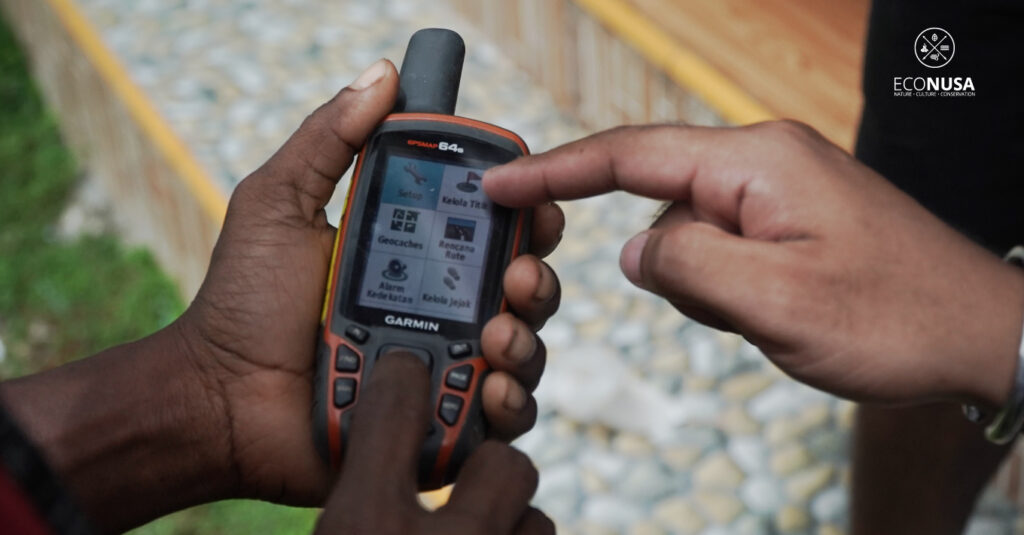
EcoNusa assisted the community in conducting participatory mapping for the protection of Indigenous Peoples (MHA). This assistance began with territorial assessments and participatory mapping training, documenting tribal history, and using GPS. This step was crucial to accurately map their forest areas. The training involved various community elements, providing the technical skills needed for mapping.
The process continued with mapping, which included depicting territories, preparing important documents such as community agreements on territorial boundaries, detailed agreements on mutually agreed boundaries, maps signed by indigenous leaders and relevant parties, and other supporting documents.
This phase was crucial to ensure that, in the future, the indigenous people would have legally valid documents recording their history, territorial boundaries, and inter-clan ownership. However, the community still had to go through legal processes during the mapping activities as the companies whose permits were revoked sued in court.
After various stages of verification, the perseverance and hard work of the indigenous community paid off when the South Sorong Regent, Samsudin Anggiluli, officially signed the Decree of Recognition and Protection of Indigenous Peoples (MHA) and Indigenous Territories in April 2024.
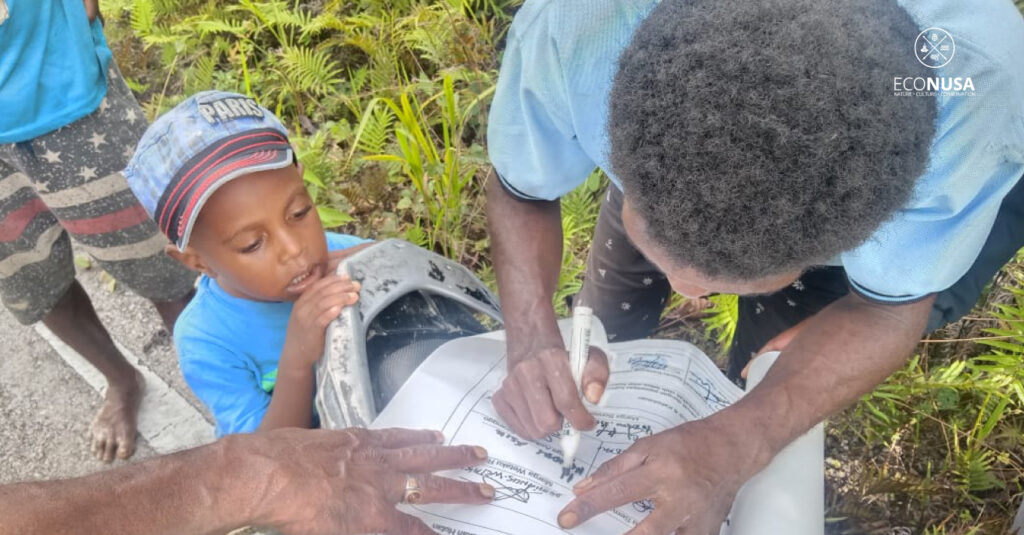
With the issuance of this decree, the indigenous territories of the Nakin Onim Fayas sub-tribe, covering Kampung Mogatemin and Onimsefa in Kais Darat District, spanning 50,136 hectares, and the Tehit Mlaqya sub-tribe, in Tapiri and Wersar villages, Teminabuan District, covering 3,780 hectares, now have strong legal protection.
Moreover, this decree is also an official acknowledgment from the local government of the identity and culture of the indigenous peoples. This is crucial for preserving long-standing cultural heritage and traditions and ensuring the involvement of indigenous peoples in decision-making processes that affect their lives.
South Sorong Regional Secretary, Ir. Dance Nauw, SP. M. Si. IPM, said this recognition is the result of collaborative work among various parties, from the government, indigenous communities to NGOs that have long supported the mapping process of indigenous territories. According to him, this is also concrete proof of the government’s commitment to ensuring recognition, protection, and respect for indigenous peoples.
“The government is committed to protecting indigenous peoples in managing their territories to ensure prosperity for the indigenous community. We will also coordinate with various parties to ensure that no one disturbs the indigenous territories,” said Dance Nauw.
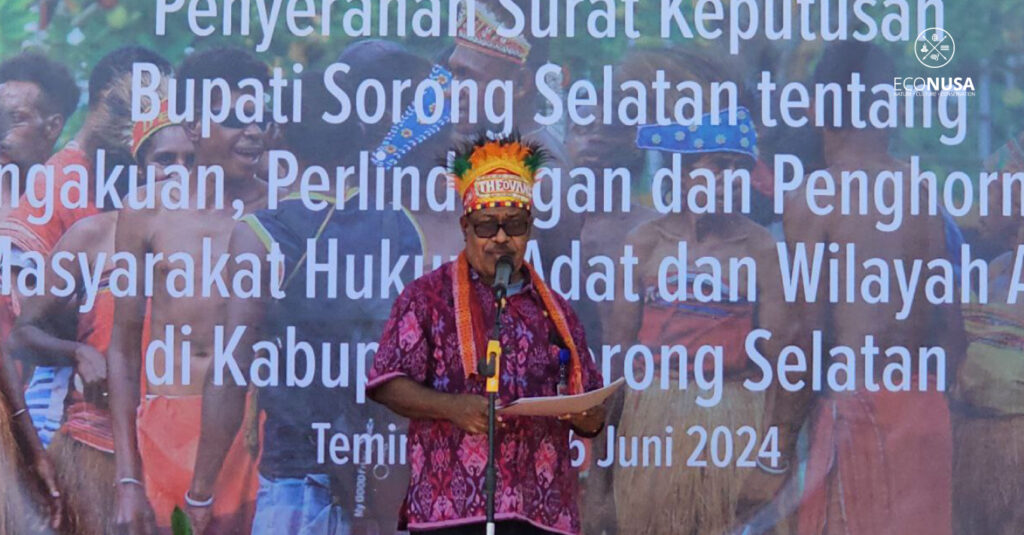
Meanwhile, Alfaris Dere, Leader of the Nakin Onim Fayas sub-tribe, expressed his joy after receiving the Indigenous Peoples and Territories Recognition Decree. According to him, the years of struggle have finally paid off.
“Praise God, we are very happy because getting to this point was not an easy journey. We thank the South Sorong government for recognizing our land rights and EcoNusa Foundation for their selfless support,” said Alfaris Dere.
Jeams Kondjol, Leader of the Tehit Mlaqya sub-tribe, shared similar sentiments, expressing gratitude and happiness for the signing of the decree. He noted that this recognition validates and honors the existence of the indigenous community.
“Our long journey began when companies attempted to clear the land. We remember the struggle, and now we are overjoyed by this historic moment. We have gained recognition as an indigenous community,” he said.
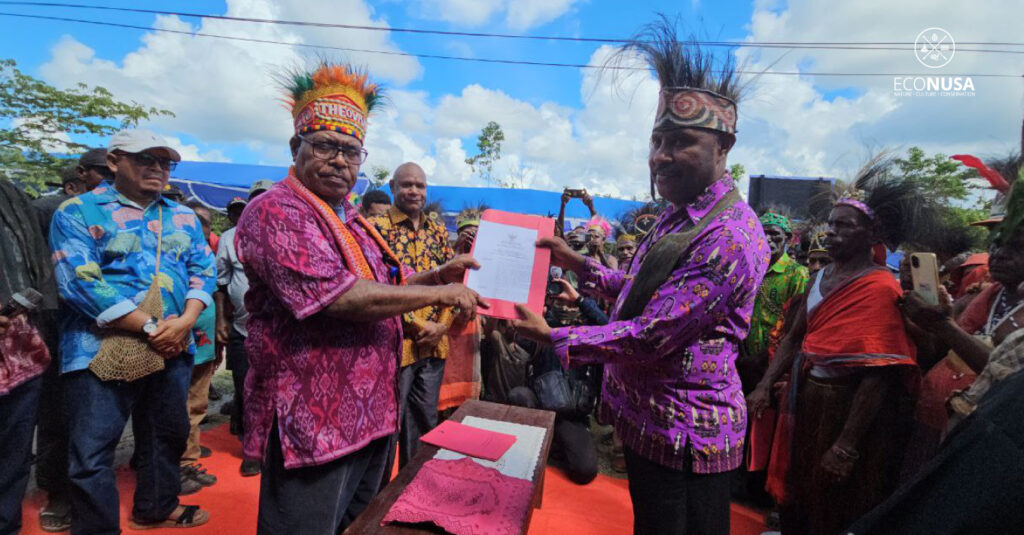
The legalization of this indigenous territory decree also helps maintain inter-clan relations and prevents potential boundary conflicts among clans. This is because the decree includes a map of indigenous territories with clearly defined boundaries.
The legally binding recognition of indigenous territories also ensures the autonomy of indigenous communities in managing natural resources sustainably, which have often been disrupted by the plantation and extractive industries that damage their forests. To support economic independence, the indigenous community established the Fgan Fen Sisi Cooperative in South Sorong Regency to develop the abundant shrimp resources in the area.
The Fgan Fen Sisi Cooperative, along with 10 other cooperatives in Papua and Maluku, established a community-based social enterprise, PT KOBUMI, in 2022. KOBUMI’s presence proves that a sustainable economy managed by indigenous peoples can align with forest conservation efforts.
Since 2022, local fishermen, cooperative members who depend on the mangrove forest resources, have been able to catch up to a ton of mangrove shrimp each week. To support packaging and marketing, PT KOBUMI also opened a shrimp storage warehouse and built an ABF (air blast freezer) infrastructure to ensure that the community’s catches have higher economic value in local and national markets. PT KOBUMI aims to develop local commodities that have so far lacked sufficient support and market expansion.
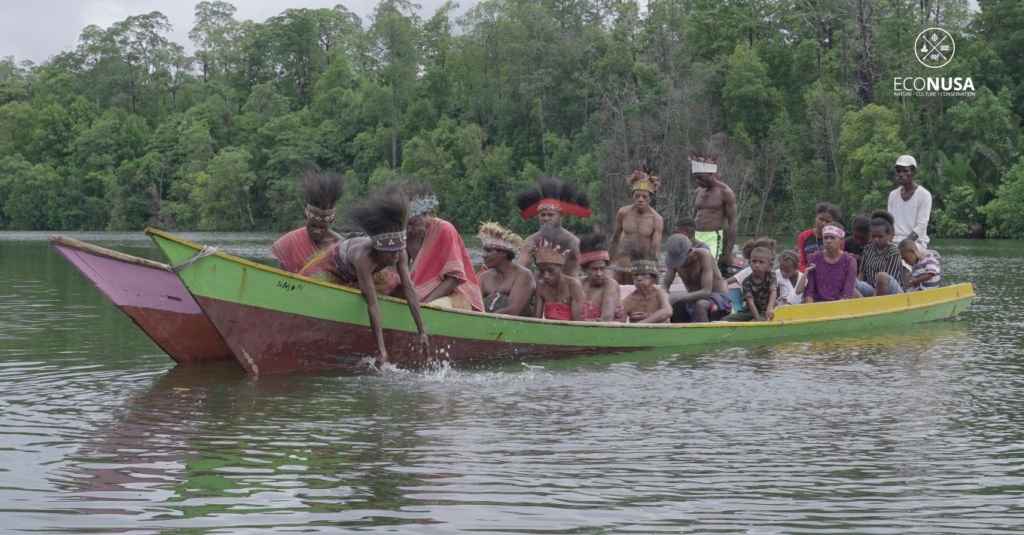
Going forward, EcoNusa and the community, through the cooperative, will develop other commodity potentials, including in the Tehit Mlaqya and Nakin Onim Fayas sub-tribe territories. This initiative requires support from various parties to be developed independently and sustainably. This is an economic restoration effort after obtaining the restoration of indigenous rights.
This innovative approach not only ensures environmental sustainability but also enhances the economic welfare of indigenous communities. EcoNusa believes that empowering communities through environmentally friendly local enterprises is key to preserving forests and indigenous territories, while also ensuring long-term welfare for the local community.
The story of the Tehit Mlaqya and Nakin Onim Fayas sub-tribes’ struggle is not just about preserving the forest as a natural resource but also about maintaining the identity, culture, and rights of indigenous peoples. This success is concrete evidence that, with collective efforts, indigenous communities can protect and uphold their rights to the land and forests that are integral to their lives.
This story is an inspiration to many to continue fighting for justice and human rights, especially for indigenous peoples who often stand at the forefront of environmental and cultural preservation.


